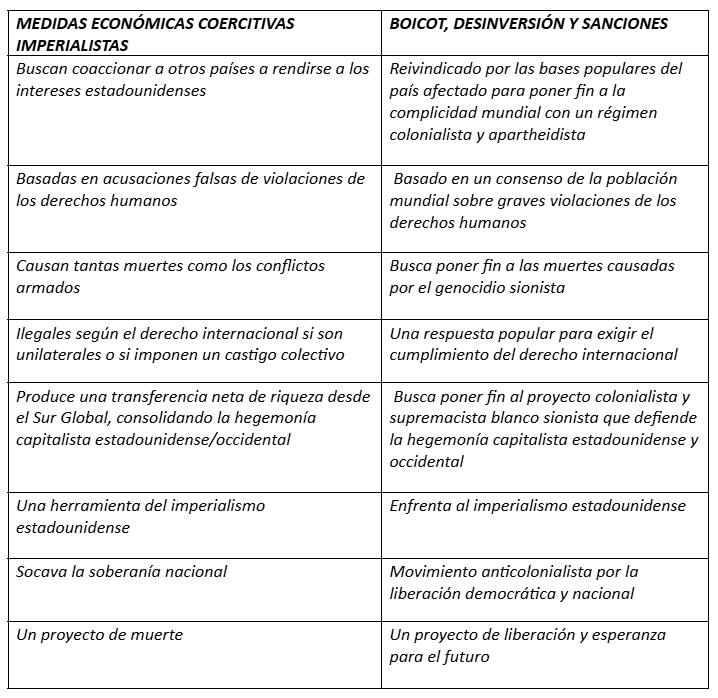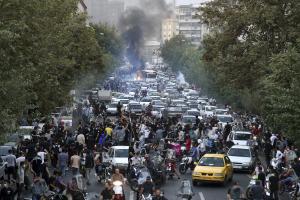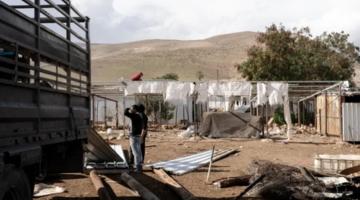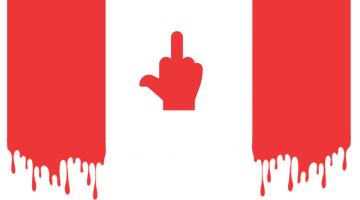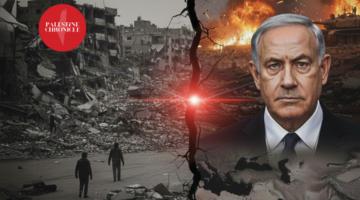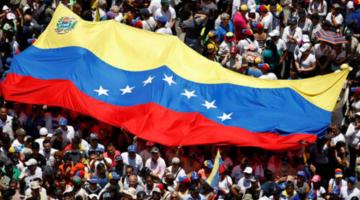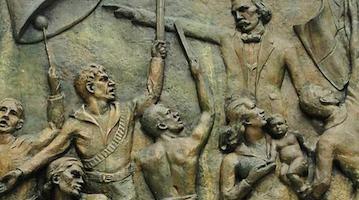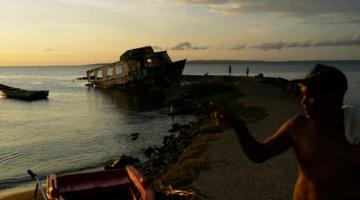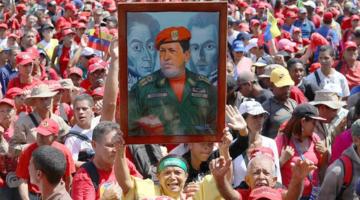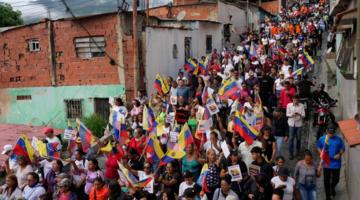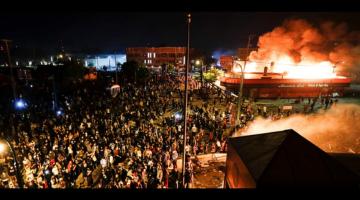The SanctionsKill campaign exposes how US economic warfare kills civilians across the Global South. Meanwhile, the Palestinian-led BDS movement represents a legitimate tool of grassroots resistance against Israeli apartheid.
The SanctionsKill campaign was formed in 2019 to raise awareness of the human cost of the “sanctions”—actually economic coercive measures—imposed by the United States and its allies on over 40 countries, in which one-third of humanity lives. Our coalition of grassroots activists has exposed the suffering and death caused to populations targeted with these measures, particularly among children, the elderly, and people with health conditions. We also strongly support the boycott, divestment, and sanctions (BDS) movement advanced by Palestinian civil society as a legitimate way for grassroots activists around the world to pressure the settler-colonial state of Israel to comply with international law and recognize the Palestinian people’s inalienable right to self-determination.
It is important to understand the distinction between BDS and imperialist economic coercive measures. While this includes legal differences, the most salient feature is that BDS is the peoples’ effort to end their governments’ complicity with Zionist colonial crimes, whereas US “sanctions” maintain imperialist hegemony by forcing countries to submit to US economic and political interests. The BDS movement comes from over a century of struggle for Palestinian liberation, with a global consensus of the world’s people that Zionist apartheid must end, while US-imposed “sanctions” are based on specious accusations of human rights violations to “continue the theft of wealth from the Global South, and preserve racial hierarchy in the international system.”
Some definitions and a bit of history can help to better understand the complementarity of BDS and SanctionsKill.
A definition of sanctions and their legality
The United Nations describes sanctions as restrictive measures imposed by the UN Security Council to enforce international law and maintain or restore peace and security, which may include “complete or partial interruption of economic, communications, or diplomatic relations.” Sanctions imposed unilaterally (without the UN Security Council) violate the UN Charter, and UN bodies are calling for the elimination of “unilateral coercive measures” such as those imposed by the US government. This global consensus is shown in the fact that for over 30 consecutive years, the UN General Assembly has voted almost unanimously to eliminate the US blockade of Cuba; the usual dissenting votes are only those of the US and Israel. Even UN Security Council sanctions are often manipulated by the US to impose collective punishment on civilians, in violation of the Geneva Conventions.
What is BDS and how does it work?
BDS for Palestine is but one expression of a national liberation struggle that has been ongoing since the first Zionist settlement was established in 1878. Evoking the Great Revolt of 1936-39, the decades-long Arab Boycott initiated in 1945, the 1975 UN resolution that declared “Zionism is a form of racism and racial discrimination,” the 1975 Organization of African Unity resolution that called for support of Palestine against “Zionist racist colonialism,” and the Intifadas, the international divestment movement started in 2000 and was relaunched as boycott, divestment, and sanctions (BDS) in 2005. It derives inspiration from the Anti-Apartheid Movement (AAM) of South Africa which led hundreds of thousands of ordinary citizens around the world to boycott goods from the Apartheid state from the 1950s to 1994. Students, churches, trade unions, and local groups pushed governments and businesses to divest. There was a cultural boycott and South Africa was banned from the Olympics and from FIFA competition between 1964 and 1992. "The strength of the international solidarity campaign was that it spoke directly to the ordinary citizen and challenged each one singly, and communities collectively, to take action.”
UN sanctions were also imposed on South Africa (including an arms embargo undermined by Israel), and the country was suspended from the UN General Assembly from 1974 to 1994. By the 1980s individual countries, including the US, were imposing sanctions. However, it seems that the boycott movement was more impactful than official sanctions, causing a “privately induced financial crisis — the repercussions of which were substantially greater than any of the public sanctions that ensued.” BDS against apartheid South Africa was a complement to the most important factor in bringing down the apartheid regime—the resistance of Black South Africans on the ground, including armed struggle.
The movement for BDS against Israeli apartheid has been accelerating since the start of the livestreamed genocide in October of 2023. This grassroots movement led by Palestinians in Palestine and in the diaspora, is inspiring millions to boycott consumer goods made in Israel and demand that Israeli weapons and surveillance companies be removed from their local economies, governments, and pension funds. Similar to the AAM of South Africa, billions of dollars have now been divested from the Zionist economy. Campaigns such as “Apartheid Free Communities” have moved public discourse towards an acknowledgement of the unjust, racist treatment of the Palestinian people. Divestment is again the rallying cry of students demanding an end to their universities’ complicity in human rights abuses, and there is an academic and intellectual boycott and call to ban the Israeli settler-colonial state from the Olympics and FIFA competition.
While the genocide takes the form of forced starvation, the world’s people are sickened to see that governments and international organizations are incapable or unwilling to stop atrocities committed in plain sight. In response, many have taken matters into their own hands through boycott and divestment. And as in South Africa, BDS is a complement to the main struggle on the ground in Palestine.
The BDS movement says that boycott and divestment necessarily come before sanctions, in order to build “a crucial mass of people power to make policymakers fulfill their obligations under international law.” It is an effort to move toward binding UN Security Council sanctions to oblige Israel to comply with the many General Assembly resolutions and International Court of Justice rulings demanding an end to Israel’s apartheid and genocide.
How do US “sanctions” work?
In contrast, the unilateral coercive measures (“sanctions”) promoted by the US are not intended to uphold international law or support peace and security, but rather to deliberately impose collective punishment on civilian populations in order to bring about regime change. This was revealed in a 1960 memo by a US diplomat explaining that a blockade of Cuba would “bring about hunger, desperation and overthrow of government.” The United States government imposes these measures on countries that try to develop economic or political systems independent of US domination. And given the US’ “exorbitant power to sanction” due to the dominant role of its dollar in international trade and banking transactions, these measures are very impactful.
Economic coercive measures punish populations by impacting global trade, thus making it hard to import food, fuel, medicines, and parts to maintain civilian infrastructure. One consequence is the inability to import chemicals and parts to maintain water supply systems, causing severe shortages of clean drinking water, leading to massive child deaths.
Even UN sanctions can be manipulated for imperialist purposes. As Doa Ali said in How to Kill an Entire Country, “Iraq is a case in point of how the US has captured the UN Security Council’s sanctioning capacity using it to impose its own ‘rules-based global order’ and further its imperialist interests, regardless of the human cost.” In 1990, after the Iraqi invasion of Kuwait and as the Soviet Union was collapsing, the US was able to engineer and oversee the imposition of severe UN sanctions on Iraq. These led to the deaths of over half a million Iraqi children from water-borne illnesses, vaccine-preventable diseases, and hunger—in a country that had achieved one of the highest per capita food production rates in the region. In the US-controlled committee that oversaw enforcement of the sanctions, the US ensured that “humanitarian exceptions” were denied and that “food itself was not considered a humanitarian necessity.”
US-promoted sanctions have killed over 100,000 Venezuelans since 2017, and 12% of child deaths in Palestine prior to October 2023 were from lack of clean drinking water due to the US-supported Israeli blockade. Further evidence that sanctions kill is the new report in the medical journal The Lancet which found that sanctions cause some 564,000 deaths annually—similar to global mortality from armed conflict—with 51% of the victims under age 5.
US-imposed coercive measures are based on extractive interests, dubious accusations of deficient democracy, and spurious charges of human rights violations, such as the allegation that Cuba is “trafficking” its doctors (they are actually proud participants in a renowned humanitarian project) and that Cuba is a State Sponsor of Terrorism (SSOT) because it hosted peace talks for Colombia. The SSOT allegation makes it extremely hard for a country to conduct any banking transactions, and together with the 63-year blockade, has caused a humanitarian crisis in Cuba. Such sanctions supposedly imposed to protect human rights are in fact the worst violators of human rights.
Conclusion
As hope grows for a Free Palestine sooner rather than later, it is time to lift the siege on Gaza that has been blocking desperately needed supplies since 2007. The “exorbitant sanctioning power of the US” on all the countries of the region – including Iran, Iraq, Lebanon, Syria, Yemen, Libya—will also end as these countries find alternative trade and financial arrangements, such as the BRICS, and a new multipolar order emerges.
The BDS movement to end Zionist violence, and the SanctionsKill campaign to abolish U.S. economic coercion, are not separate causes, but one movement for justice, sovereignty, and human dignity. Together they embody grassroots power against imperialist violence. They are people-led projects of hope and liberation, demanding a future free from the economic coercion that results in genocide, collective punishment, and colonial domination.
Differences between Imperialist Economic Coercive Measures and Boycott, Divestment, and Sanctions
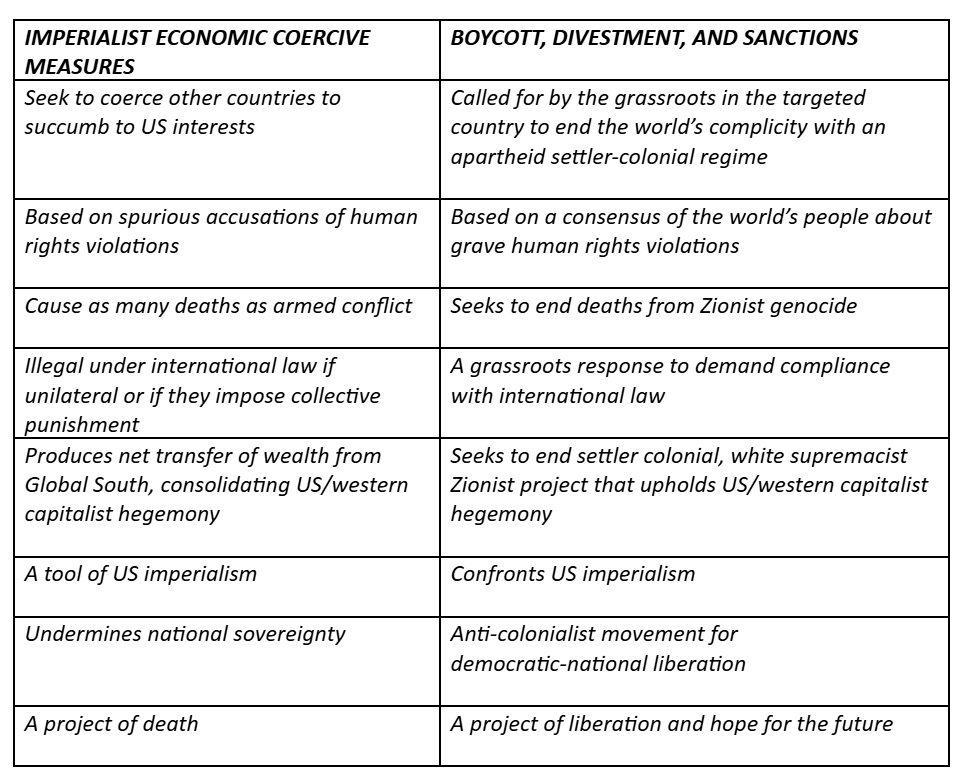
Por qué la campaña SanctionsKill apoya el BDS contra el Apartheid
La campaña SancionesMatan expone cómo la guerra económica de EE.UU. asesina a civiles en todo el Sur Global. Mientras tanto, el movimiento BDS, liderado por palestinos, representa una herramienta legítima de resistencia popular contra el apartheid israelí.
La campaña SanctionsKill se creó en 2019 para crear conciencia sobre el coste humano de las «sanciones» —en realidad, medidas coercitivas económicas— impuestas por Estados Unidos y sus aliados a más de 40 países, en los que vive un tercio de la humanidad. Nuestra coalición de activistas de base ha denunciado el sufrimiento y la muerte causados a las poblaciones afectadas por estas medidas, en particular entre los niños, los ancianos y las personas con problemas de salud. También apoyamos firmemente el movimiento de boicot, desinversión y sanciones (BDS) impulsado por la sociedad civil palestina como una forma legítima para que los activistas de base de todo el mundo presionen al Estado colonialista de Israel para que cumpla con el derecho internacional y reconozca el derecho inalienable del pueblo palestino a la autodeterminación.
Es importante comprender la distinción entre el BDS y las medidas coercitivas económicas imperialistas. Si bien esto incluye diferencias legales, la característica más destacada es que el BDS es el esfuerzo de los pueblos por poner fin a la complicidad de sus gobiernos con los crímenes coloniales sionistas, mientras que las «sanciones» estadounidenses mantienen la hegemonía imperialista al obligar a los países a someterse a los intereses económicos y políticos de Estados Unidos. El movimiento BDS proviene de más de un siglo de lucha por la liberación de Palestina, con un consenso global de los pueblos del mundo de que el apartheid sionista debe terminar, mientras que las «sanciones» impuestas por Estados Unidos se basan en acusaciones engañosas de violaciones de los derechos humanos para «continuar el robo de la riqueza del Sur Global y preservar la jerarquía racial en el sistema internacional».
Algunas definiciones y un poco de historia nos ayudan a comprender mejor la complementariedad entre el BDS y SanctionsKill.
Definición de sanciones y su legalidad
Las Naciones Unidas describen las sanciones como medidas restrictivas impuestas por el Consejo de Seguridad de la ONU para hacer cumplir el derecho internacional y mantener o restablecer la paz y la seguridad, que pueden incluir «la interrupción total o parcial de las relaciones económicas, diplomáticas o de comunicaciones». Las sanciones impuestas unilateralmente (sin el Consejo de Seguridad de la ONU) violan la Carta de las Naciones Unidas, y los órganos de la ONU piden la eliminación de estas «medidas coercitivas unilaterales», como las impuestas por el Gobierno de los Estados Unidos. Este consenso mundial se refleja en el hecho de que, durante más de 30 años consecutivos, la Asamblea General de la ONU ha votado casi por unanimidad a favor de eliminar el bloqueo de Estados Unidos a Cuba; los votos discrepantes habituales son solo los de Estados Unidos e Israel. Incluso las sanciones del Consejo de Seguridad de la ONU son a menudo manipuladas por Estados Unidos para imponer un castigo colectivo a la población civil, en violación de los Convenios de Ginebra.
¿Qué es el BDS y cómo funciona?
El BDS para Palestina no es más que una expresión de una lucha de liberación nacional que se ha prolongado desde que se estableció el primer asentamiento sionista en 1878. Evocando la Gran Revuelta de 1936-39, el boicot árabe de décadas de duración iniciado en 1945, la resolución de la ONU de 1975 que declaró que «el sionismo es una forma de racismo y discriminación racial», la resolución de la Organización para la Unidad Africana de 1975 que pedía apoyo a Palestina contra el «colonialismo racista sionista» y las intifadas, el movimiento internacional de desinversión inició en 2000 y fue relanzado como boicot, desinversión y sanciones (BDS) en 2005. Se inspira en el Movimiento Antiapartheid (AAM) de Sudáfrica, que llevó a cientos de miles de ciudadanos de todo el mundo a boicotear los productos del Estado del apartheid desde la década de 1950 hasta 1994. Estudiantes, iglesias, sindicatos y grupos locales presionaron a los gobiernos y a las empresas para que desinvirtieran. Hubo un boicot cultural y Sudáfrica fue excluida de los Juegos Olímpicos y de las competiciones de la FIFA entre 1964 y 1992. «La fuerza de la campaña de solidaridad internacional radicaba en que se dirigía directamente al ciudadano de a pie y desafiaba a cada uno de ellos individualmente, y a las comunidades colectivamente, a pasar a la acción».
Las sanciones de la ONU también se impusieron a Sudáfrica (incluido un embargo de armas socavado por Israel), y el país fue suspendido de la Asamblea General de la ONU entre 1974 y 1994. En la década de 1980, algunos países, entre ellos Estados Unidos, impusieron sanciones. Sin embargo, parece que el movimiento de boicot tuvo más impacto que las sanciones oficiales, provocando una «crisis financiera inducida de forma privada, cuyas repercusiones fueron sustancialmente mayores que cualquiera de las sanciones públicas que se impusieron». El BDS contra el apartheid en Sudáfrica fue un complemento del factor más importante para derrocar el régimen del apartheid: la resistencia de los sudafricanos negros sobre el terreno, incluida la lucha armada.
El movimiento BDS contra el apartheid israelí se ha acelerado desde el inicio en octubre de 2023 del genocidio transmitido en directo. Este movimiento popular liderado por palestinos en Palestina y en la diáspora está inspirando a millones de personas a boicotear los productos de consumo fabricados en Israel y a exigir que las empresas israelíes de armas y vigilancia sean eliminadas de sus economías locales, gobiernos y fondos de pensiones. Al igual que con el AAM de Sudáfrica, se han retirado miles de millones de dólares de la economía sionista. Campañas como «Apartheid Free Communities» (Comunidades libres de apartheid) han orientado el discurso público hacia el reconocimiento del trato injusto y racista que sufre el pueblo palestino. La desinversión es de nuevo el grito de guerra de los estudiantes que exigen el fin de la complicidad de sus universidades en las violaciones de los derechos humanos, y existe un boicot académico e intelectual y un llamamiento para prohibir la participación del Estado colonialista israelí en los Juegos Olímpicos y en las competiciones de la FIFA.
Mientras el genocidio toma la forma de inanición forzada, la población mundial se indigna al ver que los gobiernos y las organizaciones internacionales son incapaces o no están dispuestos a detener las atrocidades que se cometen a plena vista. En respuesta, muchos han tomado cartas en el asunto mediante el boicot y la desinversión. Y, al igual que en Sudáfrica, el BDS es un complemento de la lucha principal que se libra sobre el terreno en Palestina.
El movimiento BDS afirma que el boicot y la desinversión son necesariamente previos a las sanciones, con el fin de crear «una masa crítica de poder popular que obligue a los responsables políticos a cumplir sus obligaciones en virtud del derecho internacional». Se trata de un esfuerzo por avanzar hacia sanciones vinculantes del Consejo de Seguridad de la ONU que obliguen a Israel a cumplir las numerosas resoluciones de la Asamblea General y las sentencias de la Corte Internacional de Justicia que exigen el fin del apartheid y el genocidio de Israel.
¿Cómo funcionan las «sanciones» de Estados Unidos?
Por el contrario, las medidas coercitivas unilaterales («sanciones») promovidas por los Estados Unidos no tienen por objeto defender el derecho internacional ni apoyar la paz y la seguridad, sino imponer deliberadamente un castigo colectivo a la población civil con el fin de provocar un cambio de régimen. Así se reveló en un memorándum de 1960 de un diplomático estadounidense en el que se explicaba que un bloqueo a Cuba «provocaría hambre, desesperación y el derrocamiento del Gobierno». El Gobierno de los Estados Unidos impone estas medidas a los países que intentan desarrollar sistemas económicos o políticos independientes del dominio estadounidense. Y dado el «poder exorbitante de sancionar» de los Estados Unidos debido al papel dominante de su dólar en el comercio internacional y las transacciones bancarias, estas medidas tienen un gran impacto.
Las medidas coercitivas económicas castigan a las poblaciones al afectar al comercio mundial, lo que dificulta la importación de alimentos, combustible, medicamentos y repuestos para mantener la infraestructura civil. Una de las consecuencias es la imposibilidad de importar productos químicos y repuestos para mantener los sistemas de abastecimiento de agua, lo que provoca una grave escasez de agua potable y conduce a la muerte masiva de niños.
Incluso las sanciones de la ONU pueden manipularse con fines imperialistas. Como dijo Doa Ali en How to Kill an Entire Country (Cómo matar a todo un país), «Irak es un ejemplo claro de cómo Estados Unidos se ha apoderado de la capacidad sancionadora del Consejo de Seguridad de la ONU y la utiliza para imponer su propio «orden mundial basado en normas» y promover sus intereses imperialistas, sin importarle el coste humano». En 1990, tras la invasión iraquí de Kuwait y mientras la Unión Soviética se desmoronaba, Estados Unidos logró diseñar y supervisar la imposición de severas sanciones de la ONU a Irak. Estas sanciones provocaron la muerte de más de medio millón de niños iraquíes por enfermedades transmitidas por el agua, enfermedades prevenibles mediante vacunas y hambre, en un país que había alcanzado una de las tasas de producción de alimentos per cápita más altas de la región. En el comité controlado por Estados Unidos que supervisaba la aplicación de las sanciones, este país se aseguró de que se denegaran las «excepciones humanitarias» y de que «los alimentos en sí mismos no se consideraran una necesidad humanitaria».
Las sanciones promovidas por Estados Unidos han causado la muerte de más de 100 000 venezolanos desde 2017, y el 12 % de las muertes infantiles en Palestina antes de octubre de 2023 se debieron a la falta de agua potable como consecuencia del bloqueo israelí respaldado por Estados Unidos. Otra prueba de que las sanciones matan es el nuevo informe de la revista médica The Lancet, que concluyó que las sanciones causan unas 564 000 muertes al año —una cifra similar a la mortalidad mundial por conflictos armados— y que el 51 % de las víctimas son menores de 5 años.
Las medidas coercitivas impuestas por Estados Unidos se basan en intereses extractivos, acusaciones dudosas de democracia deficiente y cargos espurios de violaciones de los derechos humanos, como la alegación de que Cuba está «traficando» con sus médicos (que en realidad son orgullosos participantes en un reconocido proyecto humanitario) y que Cuba es un Estado patrocinador del terrorismo (EPT) por haber acogido las conversaciones de paz para Colombia. La acusación de EPT dificulta enormemente que un país realice transacciones bancarias y, junto con el bloqueo de 63 años, ha provocado una crisis humanitaria en Cuba. Estas sanciones, supuestamente impuestas para proteger los derechos humanos, son en realidad las que más violan los derechos humanos.
Conclusión
A medida que crece la esperanza de una Palestina libre más pronto que tarde, es hora de levantar el bloqueo sobre Gaza, que desde 2007 impide el paso de suministros que se necesitan desesperadamente. El «exorbitante poder sancionador de Estados Unidos» sobre todos los países de la región —incluidos Irán, Irak, Líbano, Siria, Yemen y Libia— también llegará a su fin, ya que estos países están encontrando acuerdos comerciales y financieros alternativos, como el BRICS, y está surgiendo un nuevo orden multipolar.
El movimiento BDS para poner fin a la violencia sionista y la campaña SanctionsKill para abolir la coacción económica de Estados Unidos, no son causas separadas, sino un solo movimiento por la justicia, la soberanía y la dignidad humana. Juntos encarnan el poder popular contra la violencia imperialista. Son proyectos de esperanza y liberación impulsados por el pueblo, que exigen un futuro libre de la coacción económica que da lugar al genocidio, el castigo colectivo y la dominación colonial.
Las diferencias entre las Medidas Económicas Coercitivas Imperialistas y Boicot, Desinversión y Sanciones
